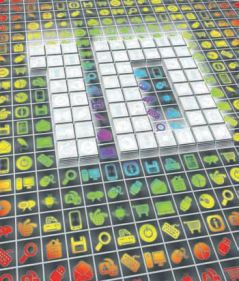A decade of innovation

As we celebrate 10 years of Research Information, here's a look back at a few of the many things experts have told us over our early years (all details of products, companies and people are described as they were at the time of original publication in Research Information)
'The ongoing march of the online movement means that XML is about to be as pervasive as the PC.' Vanessa Spedding, Research Information, Autumn 2001
'The 20 most important scientific journals all have an online presence that allows (registered) users to see the full text of any recent issue.' Robert Kiley, Wellcome Library for the History and Understanding of Medicine, Autumn 2001
'Members of the Association of Research Libraries in North America subscribe to seven per cent fewer journals today than they did in 1986 – but they’re spending 152 per cent more to subscribe. The problem is mirrored worldwide.' Alison Buckholtz, SPARC, Summer 2002
'With the advent of CrossRef, end-users want to link electronically to journals to whose publisher their institution might not have a full subscription. A common solution is pay-perview, but who pays, and who controls the budget?' Tom Wilkie, Research Information, Autumn 2002
'The arrival of the Web-based patent databases did achieve something profound for patent searching, which was to arouse the interest of researchers and managers who had not previously bothered themselves with the intricacies of the more archaic systems.' Vanessa Spedding, Research Information, Autumn 2002
'Both publishers and libraries see the current system as transitory, and most predict that the Big Deal will not be with us in five years’ time.' Mark Rowse, Ingenta, writing about research into the Big Deal, Autumn 2002
'We are delighted to be amongst the first publishers to offer COUNTER-compliant data. We see this as a significant step to making sure online journal usage is transparent to librarians and comparable across different titles and subject areas.' Jill Cousins, Blackwell Synergy, Summer 2003
'Earlier this year, the decision was made to do away with the physical library altogether and to develop a “virtual library” to deliver electronic access to nearly all books and journals. The project will also encompass inhouse analysis of information and the capture and management of internal research data.' Peter Rees, Research Information, writing about GlaxoSmithKline, Winter 2003
'In this era of electronic publishing, new arrangements are needed globally in order to preserve our intellectual heritage…It’s an exciting challenge to find ways of coping with the fast pace of change in platforms and formats.' Wim van Drimmelen, Koninklijke Bibliotheek, May/June 2004
'Only two groups are really secure in their roles in the publishing supply chain and they are the authors and the users.' Ian Middleton, EBSCO, Sept/Oct 2004
'The information society needs information specialists. We do not need traditional librarians and we do not need “simple” IT specialists.' Rafael Ball, Central Library of the Research Center Jülich, Nov/Dec 2004
'Mobile devices offer an ideal way for healthcare staff to access medical information...Despite this, the use of PDAs to access reference texts and drug information is still relatively low.' David Mort, IRN Research, Jan/Feb 2005
'Our biggest problem is convincing academics that they have something worth preserving and that an institutional repository is the place to do it.' Leo Waaijers, SURF-DARE, Oct/Nov 2005
'The journal concept – an assemblage of articles – is not sustainable in the electronic age and we need to move to a more rational structure.' Michael Gorman, American Library Association, Feb/Mar 2006
'There’s no enormous move in history or modern languages to replace monographs with e-books.' Paul Ayris, Library services, University College London, Jun/Jul 2006
'Within Europe, Wi-Fi in libraries is still in the early stages. There is much more going on in the USA.' Jim Calderbank, Bluesocket, Aug/Sep 2006
'Whilst early adopters are thriving on the additional functionality that Web 2.0-styled services can supply, the majority of researchers continue to have relatively simplistic requirements.' Charlie Rapple, Ingenta, Oct/Nov 2006
'There is a strong commitment from researchers that formal peer review is an essential part of the research process.' Mark Cassar, American Institute of Physics, Dec 2006 /Jan 2007
Want to find out more about these past stories and others? Visit our open-access archive at www.researchinformation.info/features






